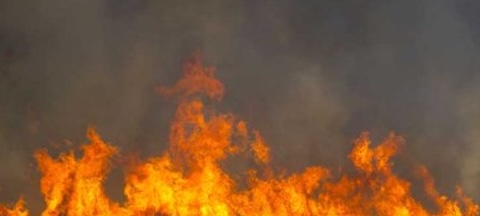Wanted: the best woodsmen, hunters for expedition
Published 5:18 pm Sunday, December 21, 2003
Eighth in a series
The key to any successful venture begins with the people inside the organization. It would be the same for the Lewis & Clark’s Corps of Discovery. The two captains needed a certain type of individual who could leave at movements notice and be away from home for over two years and possibly not return.
Trending
In a note to Clark, Meriwether Lewis laid out the qualifications they were searching for. “Good hunters, stout, and unmarried, accustomed to the woods and capable of bearing bodily fatigue to a considerable degree,” were the characteristics of merit for the group.
William Clark chose the first men, telling Lewis in a letter he had engaged “the best woodsmen and hunters in this part of the country.” Lewis accepted these recruits and fumed as he sat in Pittsburgh waiting for a tardy boat builder to finish the keelboat.
During this period of delay Lewis watched many good soldiers he had recruited drift away to other military assignments. It only made him more upset. Lewis finally left Pittsburgh with the third and fourth members of the crew, John Colter and George Shannon.
The shallowness of the Ohio River caused a 30-day delay for the small group to arrive at Clarksville, Ind. As the keelboat docked, Clark waited with the seven young Kentuckians he had selected. They were John Shields, George Gibson, Charles Floyd, Nathaniel Pryor, William Bratton, and the brothers Reuben and Joseph Fields. With Shannon and Colter, they became known in history as the “nine young men from Kentucky,” and would provide the nucleus of the Corps of Discovery.
The ordeal of moving the boats against the current of the Mississippi convinced the captains they needed more manpower to tackle the swifter Missouri River. When the group docked at Fort Kaskaskia they recruited the most able men at the fort. On Nov. 28, another dozen or so soldiers were signed on. The men continued upstream against a winter wind arriving at Camp Dubois on Dec. 12, 1803.
On the 13th the men began to clear land and cut logs for the construction of the winter quarters named Camp Dubois. Drouillard, an interpreter, arrived from Tennessee on the Dec. 22 with eight men, four of whom were judged unsuitable and sent on their way. During the stay at Camp Dubois more names would be slowly added to the duty roster.
Trending
In looking back on the captain’s choices they primarily selected good men who met their criteria. Of course not all the men would live up to the standards Lewis set forth in his note to William Clark. There would be trouble, but what they could not have known, as they shivered in Camp Dubois, was how close they were to becoming American heroes.
Dave Hinze is a professional historian and tour guide. He leads tours and presents at conferences on Lewis & Clark, and other topics pertaining to early American history, for the American History Education Association. You can reach Dave at 1-800-298-1861 or AHEA2004@yahoo.com









